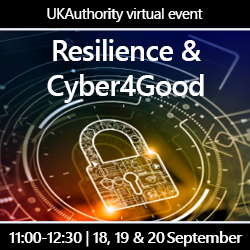"Mesh networking" technologies similar to the FireChat app used by pro-democracy demonstrators in Hong Kong could be used to undermine elites in the developing world by improving access to information, according to US-based tech pioneer Tom Donaldson.
Donaldson is head of research and development at Jawbone, a firm specialising in wearable technologies, but from 2005-09 he founded and ran Pencil Technologies, a start-up which used Bluetooth-based mesh networking to run social projects in the developing world.
Pencil Technologies developed a mesh networking device called Passerby which cost about 10 dollars and worked like a pared-down mobile phone but only used Bluetooth running off batteries and solar power, so it worked at short distances but did not need network contracts or coverage.
The clever aspect to the device, expanding its range indefinitely, was that it learned the user's extended networks of family members, friends and colleagues by detecting and remembering the Bluetooth connections from all other similar devices it came across. Then messages - from personal messages to educational content such as farming advice - could be passed from device to device, travelling large distances through small hops.
"When you wanted to get a message from A to B, the idea was as folks passed each other, it would work out who to use to pass a message on, so people would be carrying them unaware they were carrying them," Donaldson told UKAuthority.com.
"So if you were a girl who did not go to school because in your culture you were not allowed, you could still build a relationship with teachers because your brother went to school or because someone in your village happened to pass the teacher sometimes."
With the help of international development charity Practical Action, the start-up built prototypes and ran a field trial in a rural community in northern Zimbabwe where there was no cellphone coverage and no electricity. The idea was to help disseminate valuable information such as new ways of farming and how to combat cholera, and it soon roused the interest of the country's controversial ruling regime.
"The trial was a few months before a highly contested election in 2005 so it was a sensitive time from a democratic perspective - even owning unlicensed radios could land you in a lot of trouble", said Donaldson.
"The regional director of security was Mugabe's personal security chief and they were there during the trial period, making sure everything was to their satisfaction. We decided it would be too dangerous to try and do it under the radar, so we made sure we got permission from the security services and tried to persuade them it was no threat, but I hope it would certainly have been of benefit to democracy."
Eventually the project ran out of funding, but the concept still holds potential and remains to be developed, he said. Above all, the real potential value of mesh networking in boosting democratic development is less about evading the law directly than breaking elite control of all kinds of information.
"In Zimbabwe the farmers said look, when we sell our goods we have one guy in a truck who turns up every week and offers a fixed price - take it or leave it. Then he drives to the nearest town and immediately gets a big mark-up. But a lot of the farmers don't know where the markets are, or what the mark-ups are. I have seen it in Brazil and India as well - products bought for 6 cents a kilo and then sold at 6 dollars - the mark-ups are just crazy."
In fact, the best market for a farmer's produce might sometimes even be a neighbouring village, rather than a more distant market town, Donaldson said. "So a lot of mesh networking technology is about making information geographic, undermining an elitist power structure. From a democratic viewpoint, it is not just about overthrowing governments, it can be about overthrowing a local businessman who has a lock-in on distribution."
Another key use could be to expand education, he said. "Say if girls are not getting educated because a village elder says it is not important, networking is an enabler. It could address wider systems of inequality that are predicated on controlling access to information."
What of FireChat, the mesh networking app that has been widely reported as helping to organise pro-democracy protests in Hong Kong? The app does work on a similar principle, Donaldson said, but it is only software so requires a smartphone; and it may not be secure.
"FireChat has lots of benefits, particularly from the efficiency of distributing relevant information, but I am not convinced that just because it is a mesh network and doesn't go through the internet or a cellphone network, that makes it private and secure.
"If someone had a laptop that was using FireChat protocol and was standing in the square the protestors were in, they could probably glean an awful lot of information about who was communicating with whom.
Even if was encrypted - and it's not easy to strongly encrypt in a mesh process - somebody could see what messages are flowing, almost certainly their source and destination, and some of the spots in-between, from that they could probably see who are the sources of most information."
If agencies who wanted to break up protests also had access to communications records such as IP and MAC addresses - unique identifiers for anyone online or using a mobile device - they could start to link this information to individuals, Donaldson said.
"I suspect security services would find it relatively easy to find all sorts of information to act in all sorts of unpleasant ways if they were so motivated. So while it has a huge range of benefits, it is not a magical system for activists to evade the law."
Pictured: Rural farmers in Binga, northern Zimbabwe, welcome an AusAID Program team into their village, by the Australian Department of Foreign Affairs and Trade/Wikimedia Commons.




